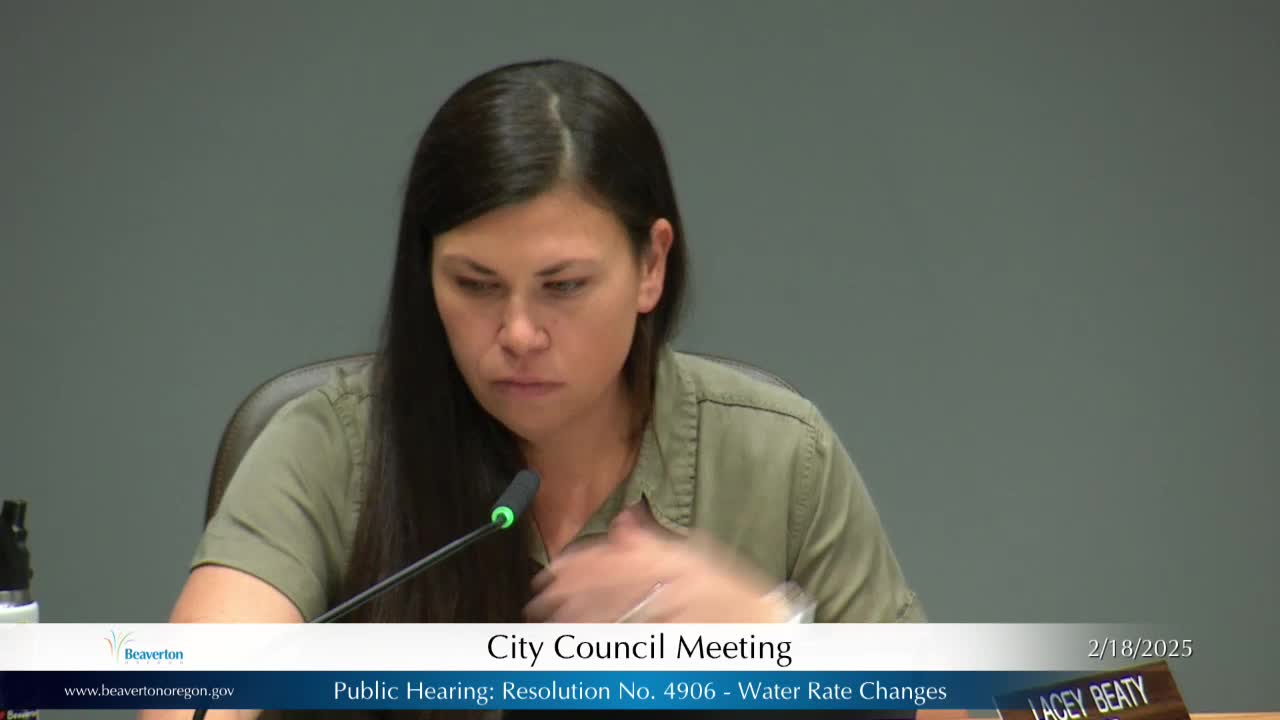Article not found
This article is no longer available. But don't worry—we've gathered other articles that discuss the same topic.
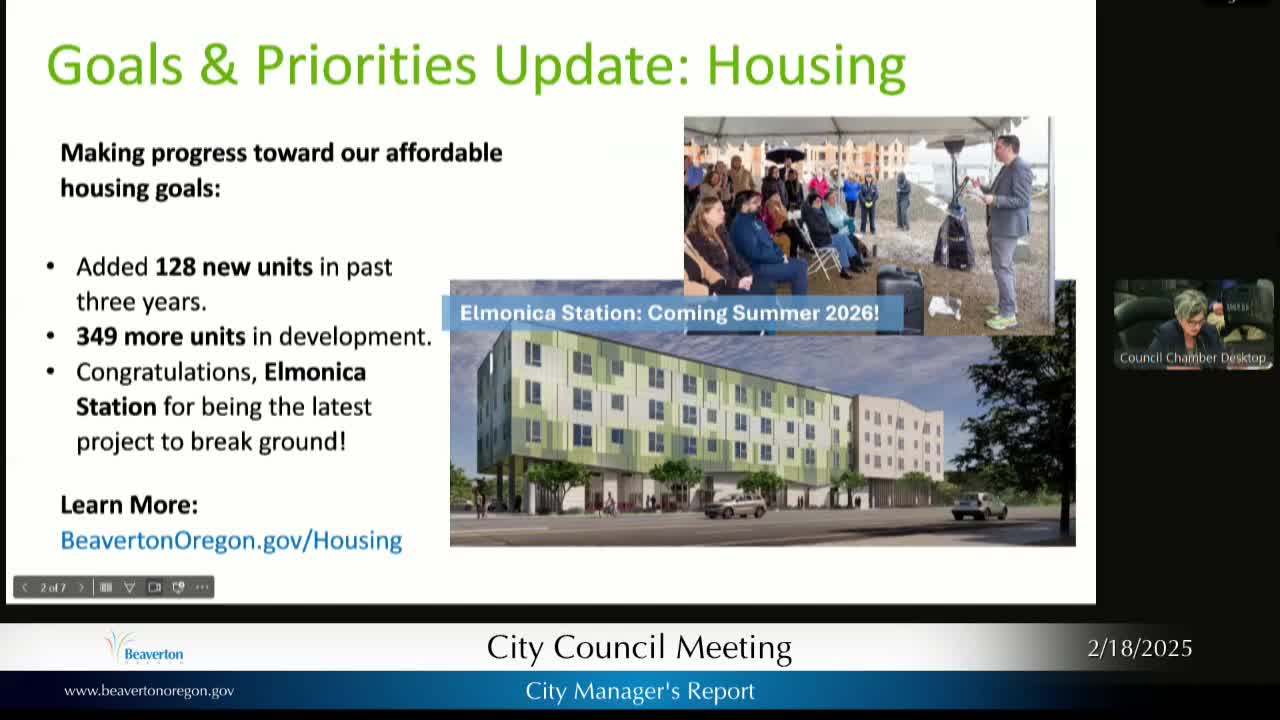
City manager highlights affordable housing additions, El Monico Station project, meter rollout, grants and Be Sober court recognition
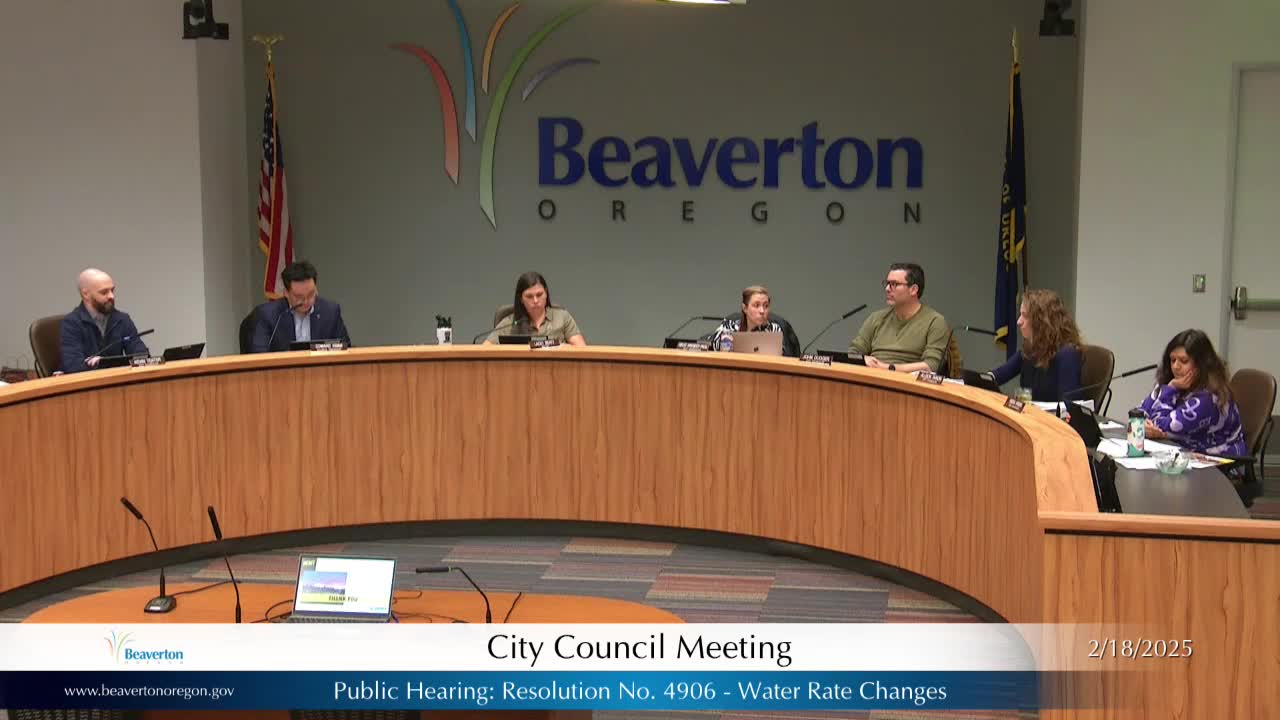
Beaverton begins update to Transportation System Plan, council agrees on broad vision and goals
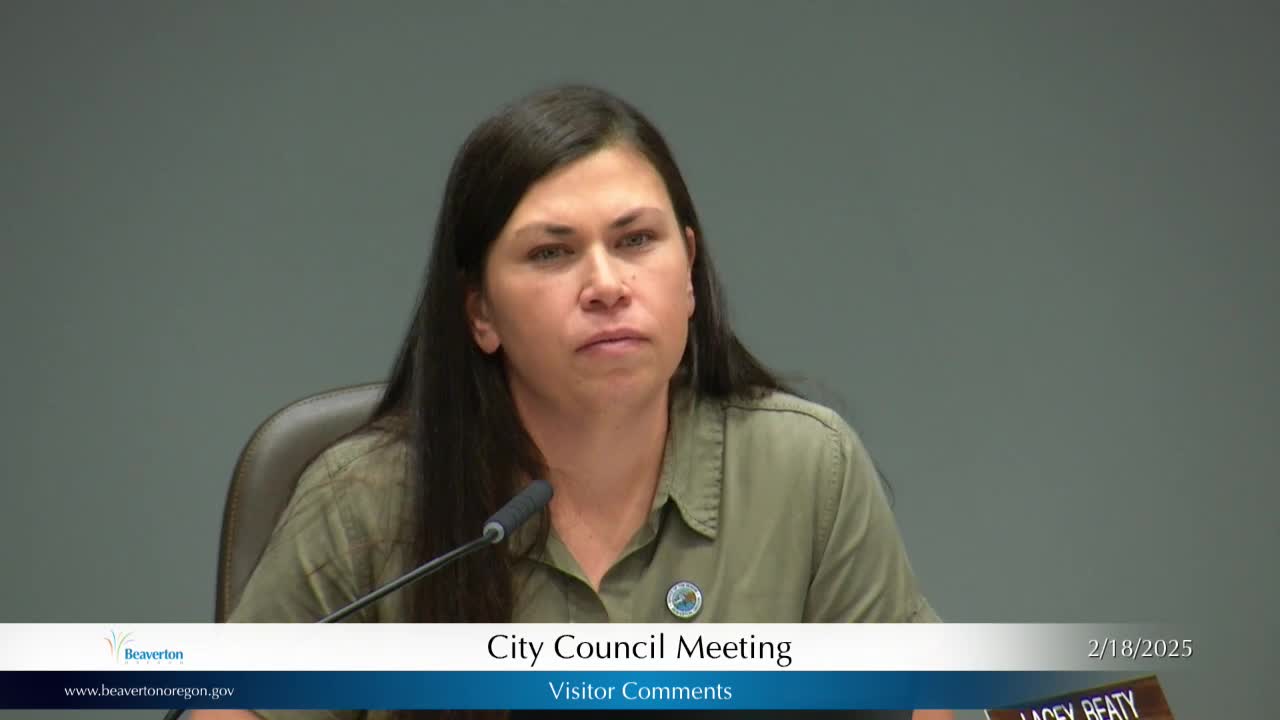
Downtown Beaverton business owners urge action after repeated vandalism; sheriff highlights grant and response teams
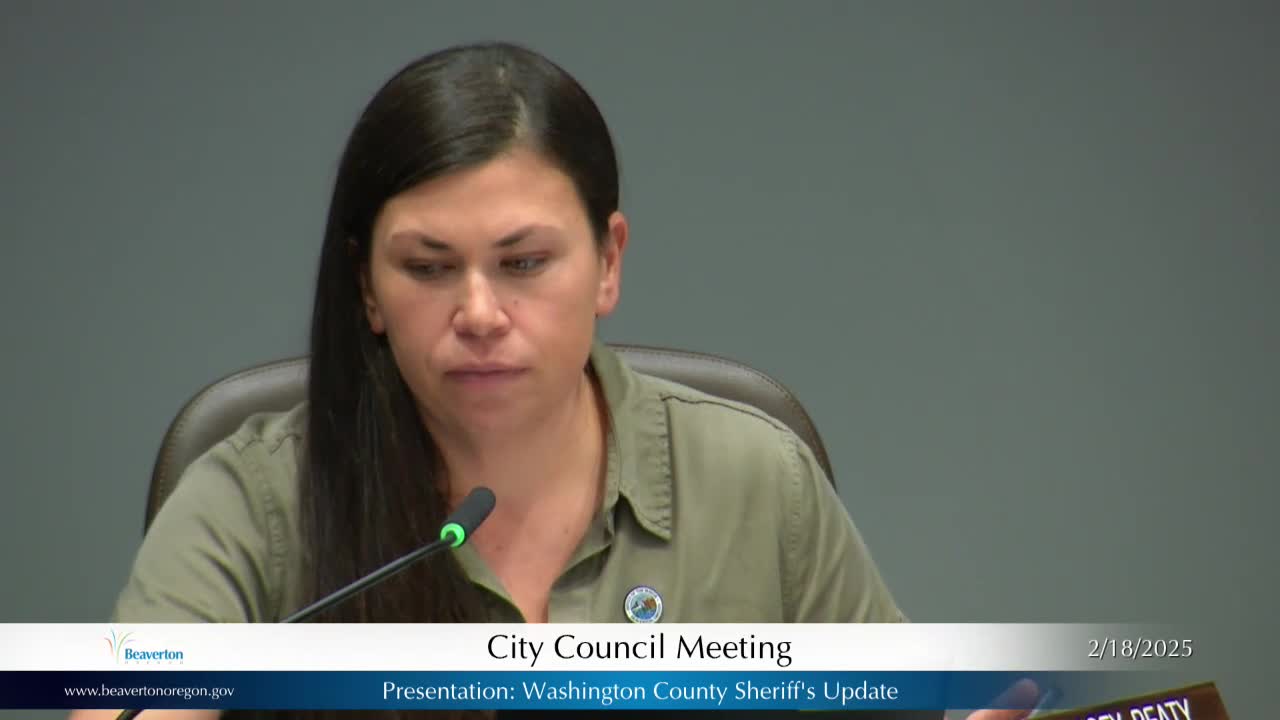
Washington County sheriff briefs Beaverton council on jail staffing, infrastructure repairs and a November public‑safety levy
